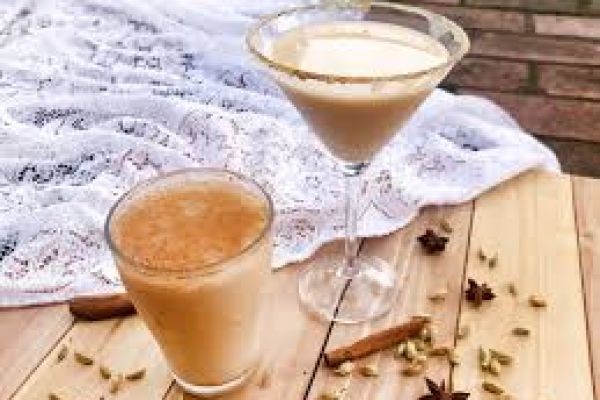The alcoholic tea market is rapidly gaining traction as consumers increasingly seek beverages that support mindful drinking. With a focus on lower alcohol by volume (ABV) and the inclusion of functional ingredients, alcoholic tea is reshaping the alcoholic beverage landscape for a generation that wants balance, wellness, and enjoyment—all in one sip.
Offering a light, refreshing profile and a more intentional approach to drinking, alcoholic tea aligns perfectly with the modern lifestyle. Whether it's for socializing, winding down, or celebrating, these drinks allow consumers to enjoy alcohol in a healthier, more conscious way.
A New Age of Conscious Consumption
The shift toward mindful drinking is not just a trend—it’s a cultural movement. More people are rethinking their relationship with alcohol, choosing beverages that let them remain present, energized, and in control. Alcoholic tea, with its lower ABV content (typically between 3% and 6%), provides a satisfying alternative to high-proof spirits or calorie-heavy cocktails.
This moderation-first approach allows drinkers to enjoy more social occasions without the hangover or regret. It’s not about eliminating alcohol—it’s about making smarter choices.
The Role of Functional Ingredients
One of the key elements setting alcoholic tea apart from other beverages in the RTD (ready-to-drink) segment is its integration of functional ingredients. These additions provide more than just taste—they offer wellness benefits that resonate with today’s health-conscious consumers.
Common functional ingredients found in alcoholic tea products include:
-
Green tea and black tea: Packed with antioxidants and naturally energizing
-
Chamomile and lavender: Known for calming and stress-reducing properties
-
Ginger, turmeric, and lemongrass: Support digestion and immunity
-
Adaptogens like ashwagandha or holy basil: Help the body manage stress
By incorporating these botanicals and herbs, alcoholic tea offers a multi-dimensional drinking experience—blending pleasure, purpose, and function in every can or bottle.
Low-ABV Beverages Lead Market Innovation
As interest in lower-alcohol options grows, brands in the alcoholic tea market are prioritizing formulations that support moderation. These drinks allow for social sipping over extended periods, appealing especially to consumers who want to enjoy the moment without becoming overly intoxicated.
This makes alcoholic tea an ideal choice for:
-
Daytime events and brunches
-
Post-work relaxation without overindulgence
-
Outdoor gatherings and wellness festivals
-
Balanced lifestyles that blend fun with responsibility
Low-ABV also allows consumers to try new flavors without committing to strong spirits, which is especially attractive to younger, adventurous drinkers.
Packaging and Positioning for the Mindful Drinker
The branding of alcoholic tea plays a significant role in appealing to those practicing mindful drinking. Clean, minimalist designs with natural tones, transparent ingredient lists, and eco-conscious packaging all reinforce the idea that these products are meant to nourish—not just intoxicate.
Canned formats dominate the category, offering portability and ease without sacrificing elegance. This makes alcoholic tea perfect for occasions where traditional alcohol might feel too heavy or socially inappropriate.
The narrative around these beverages is also changing. Rather than focusing solely on getting a buzz, alcoholic tea brands are highlighting mood enhancement, flavor exploration, and personal wellbeing.
Gen Z and Millennials Embrace Mindful Options
Younger consumers are leading the charge toward more mindful drinking habits. Gen Z and millennials are more likely to read labels, choose low-calorie and low-sugar options, and experiment with functional ingredients. They also value experiences over excess—favoring drinks that contribute to their lifestyle without compromising their health.
This generational shift is one of the major forces propelling the growth of the alcoholic tea market. These consumers are eager to explore products that fit seamlessly into their routines—whether that's a tea cocktail after a yoga session or a low-ABV sparkling hibiscus drink at a weekend gathering.
Expanding Flavor Horizons With Wellness in Mind
The versatility of tea as a base ingredient allows for endless flavor possibilities. Brands are getting creative by blending teas with botanicals, tropical fruits, citrus infusions, and earthy spices. These blends offer complex flavor profiles without the need for excessive sweeteners or artificial flavoring.
This commitment to clean, plant-based ingredients gives alcoholic tea a competitive edge in a marketplace where authenticity and quality are paramount.
Conclusion
The alcoholic tea market is not just growing—it’s evolving with purpose. As consumers lean into mindful drinking and wellness-focused lifestyles, tea-infused alcoholic beverages are proving to be the ideal bridge between indulgence and intention.
With lower ABV, functional ingredients, and refreshing flavor profiles, alcoholic tea is helping people enjoy alcohol in a way that aligns with their values. It’s not just about what’s in the glass—it’s about how it makes you feel. For modern consumers, that feeling is balanced, light, and truly satisfying.

